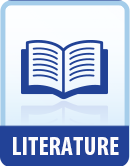
|
| Name: _________________________ | Period: ___________________ |
This test consists of 5 multiple choice questions, 5 short answer questions, and 10 short essay questions.
Multiple Choice Questions
1. How many stressed / emphasized syllables occur in the opening comment of the poem, “I sing a true song of myself” (l. 1)?
(a) 2.
(b) 4.
(c) 3.
(d) 5.
2. The narrator notes that which of the following darkened (l. 31)?
(a) The new moon.
(b) The day-walker.
(c) The swift winds.
(d) The night-shadow.
3. The second sentence of the poem reads “Pinched with cold / were my feet, bound by frost / in cold fetters, while cares seethed / hot around my heart, hunger tore from within / my sea-weary mind” (ll. 8-12). The sentence offers an example of which of the following?
(a) Parallelism.
(b) Pointillism.
(c) Paradox.
(d) Passant.
4. The phrase “frost bound the ground, hail fell on the earth” (l. 32) offers an example of which of the following?
(a) Euphemism.
(b) Rhyme.
(c) Pun.
(d) Hyperbole.
5. Which of the following came from the north (l. 31)?
(a) Rain.
(b) Attack.
(c) Snow.
(d) Wind.
Short Answer Questions
1. In line 29, “proud and puffed up with wine, what I, weary,” offers an example of which of the following?
2. In line 32, “frost bound the ground, hail fell on the earth,” how many relatively stressed / emphasized syllables are present?
3. The narrator notes suffering in which of the following (ll. 27-30)?
4. The narrator comments "the curlew’s cry ” which of the following (l. 21)?
5. To what end does the narrator note he is driven (ll. 36-38)?
Short Essay Questions
1. The narrator remarks that “he who has tasted life’s joy in towns, / suffered few sad journeys, scarcely believes, / proud and puffed up with wine, what I, weary, / have often had to endure in my suffering” (ll. 27-30). What tone is conveyed in the passage?
2. Consider the symbolism of the seabirds the narrator catalogs (ll. 20-23). What rhetorical appeal/s does the narrator make in evoking it?
3. Consider the symbolism of the swan-song the narrator mentions (ll. 19-20). What rhetorical appeal/s does the narrator make in evoking it?
4. The narrator remarks that “no sheltering family / could bring consolation to my desolate soul” (ll. 25-26). What rhetorical appeal/s does the narrator make in doing so?
5. The narrator states that “The night-shadow darkened; snow came from the north, / frost bound the ground, hail fell on earth, / coldest of grains” (ll. 31-33). What rhetorical appeal/s does the narrator make in the statement?
6. The opening passages of the poem has the narrator state that “in days of toil / I’ve often suffered troubled times, / hard heartache” (ll. 2-4). What rhetorical appeal/s does the narrator make in doing so?
7. Consider the kenning for hail, “coldest of grains” (l. 33). How does the kenning construct meaning?
8. The second sentence of the poem reads "Pinched with cold / were my feet, bound by frost / in cold fetters, while cares seethed / hot around my heart, hunger tore from within / my sea-weary mind" (ll. 8-12). Three things are put into juxtaposition. What are they, and what effect does the juxtaposition have?
9. The narrator comments that “they compel me now, / my heart-thoughts, to try for myself / the high seas, the tossing salt streams; / my heart’s desire urges my spirit / time and again to travel, so that I might seek / far from here a foreign land” (ll. 33-38). What tone is conveyed in the passage?
10. What tone is set by the first 26 lines of the poem? How do they do so?
|
This section contains 1,015 words (approx. 4 pages at 300 words per page) |

|




